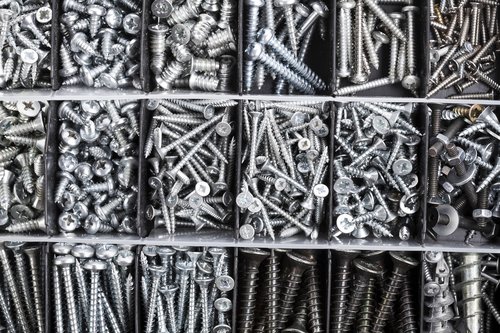Selecting Fasteners To Be Used In Acidic Environments
When thinking of choosing fasteners for a specific job, most people have a default type that they will think of such as aluminum hex nuts. However, there are times when you may need to give the process of selection a bit more thought. An example of this is when you want to use the fasteners in acidic environments.
In such cases, you will find that most regular metals will be damaged by the acids. The key to success lies in finding a metal that has resistance to the type of acid you will be working with. For instance, when choosing fasteners that will be in contact with concentrated sulfuric acid, some of the things you need to consider in order to select the best material include:
The temperature
The ambient temperature affects how sulfuric acid behaves. You therefore need to take it into account when selecting the fasteners for this application. Even small changes in temperature can dramatically increase the rate of corrosion of sulfuric acid, so this is something that you can’t afford to neglect. Once you find out what temperature the acid will be at, you will be in a better position to figure out which fasteners you can use for the job. If you work with a high quality contractor, it will be possible to do this with ease. A few fasteners, such as titanium socket set screws, tend to be stable at most temperatures of sulfuric acid.
The concentration of the acid
You also need to take into account the concentration of the acid when selecting fasteners that will be in contact with it. The strange thing about sulfuric acid is that when it’s more than 99% concentrated, it’s not very corrosive. This means that you can use most fasteners materials with it, including carbon steel. However, when diluted, it will become more corrosive as well as producing a lot of heat. This basically means that if you are going to have a system where the concentration of the acid will keep changing, you will need to use fasteners that can withstand the acid when it’s most corrosive. It will also need to be resistant to heat, so that it won’t be affected by the exothermic process of diluting it.
The mechanical requirements
You should always consider the mechanical requirements of the fasteners when choosing them. If the fasteners are going to be subjected to very heavy loads, focusing on the fact that they will be exposed to acids only may lead you to choose weak fasteners. In such cases, they could end up breaking despite the fact that they would be resistant to the acid. To avoid this, you should always consider the mechanical implications of choosing specific fasteners.
In summary, if you are thinking of using fasteners in acidic environments, you should not have a one size fits all mentality. There are many factors that influence the best type of fastener to use in a particular setting, and you need to consider all of them for optimal results.

